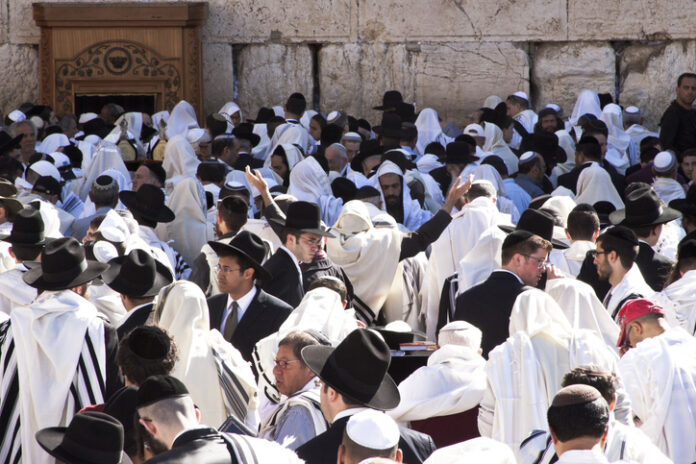On Thursday 2nd October the British nation was shocked by a terror attack, on which a Syrian-born British national rammed a car into worshippers outside a synagogue in Manchester, then tried to break into the synagogue wielding a knife. He was shot dead by police.
The day was Yom Kippur – the holiest day in the Jewish calendar. On this day, religious Jews attend synagogue services and spend the day fasting and praying for forgiveness of their sins. Even secular Jews often fast as a sign of their Jewish identity.
This was not the first attack on Jews on Yom Kippur. In 1973 a coalition of Arab states, led by Egypt and Syria, attacked Israel on what became known as the ‘Yom Kippur war’. Exactly 50 years later was 7th October 2023, the date of the infamous Hamas attack.
But what is this ‘holy’ day? It originated in the Law of Moses, which God gave to the Jews. Your Bible probably calls it the ‘Day of Atonement’. It was an extremely important religious celebration that Jews were commanded to keep each year. (As with all Jewish festivals, the original ritual is no longer followed.) Leviticus 16 gives instructions for all the people, and especially for the High Priest. He had to perform rituals, including animal sacrifices, that were unique to that day; the people were told: “afflict yourselves” (and hence the fasting). All the sins of the previous year, for the whole nation, were forgiven on this day. This included sins for which sacrifices had already been offered during the year. No wonder it is regarded as ‘holy’.
But followers of Jesus do not keep this festival. Why? The reason is fundamental to the Christian faith, and is explained in Hebrews 10:1-18.
The Law could never make the people ‘perfect’ (v. 1). There was this ‘reminder of sins each year’ (v. 3). And, most importantly,
‘…it is impossible for the blood of bulls and goats to take away sins’ (v. 4).
The Law of Moses in all its aspects was actually pointing forward to its ultimate fulfilment in God’s Son, Jesus Christ. The Day of Atonement was pointing forward to the once and for all sacrifice for sins:
But when Christ had offered for all time a single sacrifice for sins, he sat down at the right hand of God (v. 12).
Tragically, the Jews did not accept Jesus as their promised Messiah. They, together with the Roman officials, had him crucified. Very few Jews accept Jesus now. Some use this as an excuse for antisemitism.
But why does all this matter?
Firstly, God takes little delight in mere observance of the rituals themselves. He asks for obedience and the right attitude. Ritual was intended as an external sign of an obedient, godly heart. God said:
For I desire steadfast love, and not sacrifice, the knowledge of God rather than burnt offerings (Hosea 6:6).
There are few rituals for followers of Jesus. (Can you think what they are?). They are essential to observe, but it is crucially important that we develop the right attitude, and imitate Christ who ‘came to do the will of God’ (Hebrews 10:5-7).
Secondly, we have no room for complacency. Despite their rejection of Jesus, the Jews had, and still do have, a special place in the plan of God (Romans 11:1, 25-26). While we should be sad at their rejection of Jesus, there is absolutely no reason for antisemitism. Rather, we should humbly learn from their mistakes (Romans 11:20).
A final thought: many Jews are easily identifiable. It was well known that they observe Yom Kippur. If we profess to follow Jesus, is our allegiance and faith equally obvious in our daily attitude and behaviour? Do we really value the once for all forgiveness achieved by Jesus? We should do.
Anna Hart


